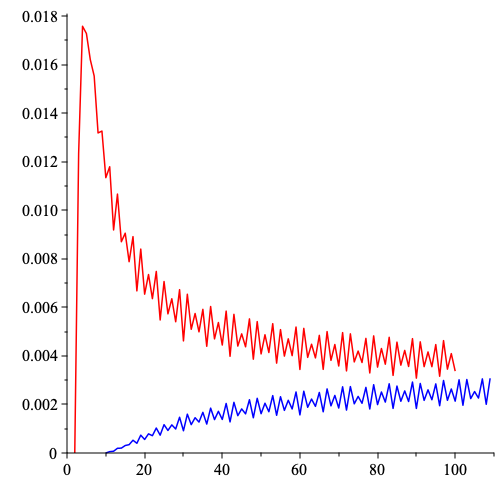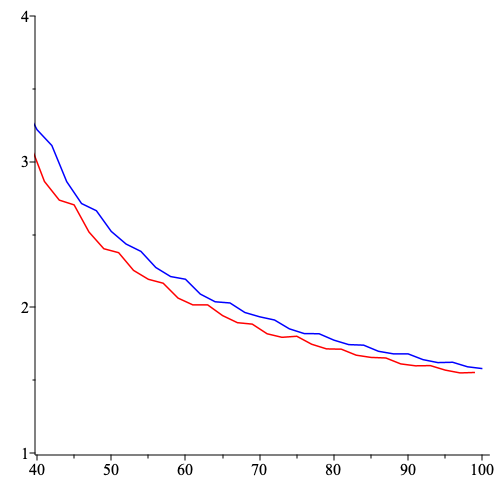Question. Let $\mathcal{M}_3$ be the set of $3\times 3$ matrices with non-negative integer entries and unit determinant. What is the number of $M\in \mathcal{M}_3$ with fixed sum of entries? What is the answer if we allow only matrices with strictly positive entries?
The rate of growth is also interesting. Below $n$ stands for the sum of entries.
Origin. For the similar question in the case of $2\times 2$ matrices we get $\phi(n)$ and $\phi(n) - 2$ respectively, see this recent post: Decomposition of a natural number as sum of positive integers.
Computation of the first elements. If we denote the answer sequence for non-negative case by $a_n$ then the first elements are
| $n$ | 1 | 2 | 3 | 4 | 5 | 6 | 7 | 8 | 9 | 10 | 11 | 12 | 13 | 14 |
|---|---|---|---|---|---|---|---|---|---|---|---|---|---|---|
| $a_n$ | 0 | 0 | 3 | 18 | 54 | 126 | 261 | 432 | 783 | 1134 | 1899 | 2286 | 3960 | 4680 |
$a = [0, 0, 0, 3, 18, 54, 126, 261, 432, 783, 1134, 1899, 2286, 3960, 4680, \ldots]$.
And if $b_n$ is the answer for the strictly positive case then $b_n = 0$ if $n \le 10$ and further we have
| $n$ | 11 | 12 | 13 | 14 | 15 | 16 | 17 | 18 | 19 | 20 | 21 | 22 | 23 | 24 |
|---|---|---|---|---|---|---|---|---|---|---|---|---|---|---|
| $b_n$ | 9 | 18 | 72 | 108 | 234 | 360 | 747 | 756 | 1818 | 1782 | 3222 | 3672 | 6615 | 5850 |
$b = [0,\ldots ,0, 9, 18, 72, 108, 234, 360, 747, 756, 1818, 1782, 3222, 3672, 6615, \ldots]$.
Unfortunately, both sequences do not seem to be in OEIS.
Thoughts on the growth. Evidently, $a_n\ge b_n$, and $a_n\le Cn^8$ because the number of partitions of $n$ into $9$ terms is $O(n^8)$. If we consider only upper-triangular matrices with ones on the diagonal, we will get the bound $a_n\ge Cn^2$.
Thus, the answer is of polynomial order. Note that this is different to the $2\times 2$ case where the number-theoretic properties played the main role.


